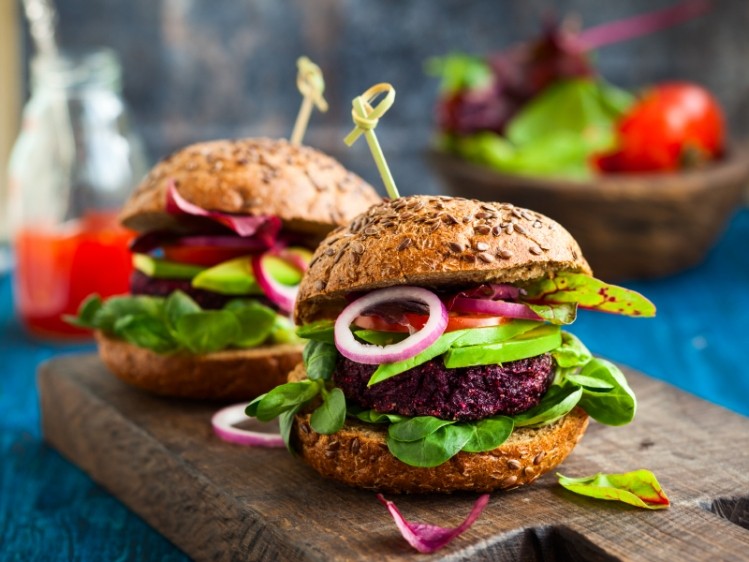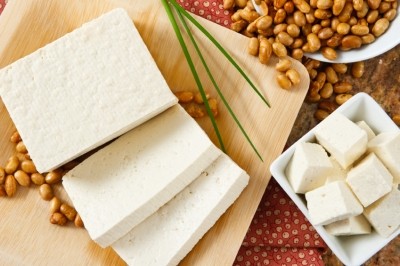Mission possible: is Impossible Foods’ new plant-based burger a “breakthrough”?

“It tastes nothing like a veggie burger,” a company spokesman told FoodNavigator. “The Impossible Burger tastes like conventional meat.”
But how? The product contains wheat, coconut oil and potato protein – all pretty standard fare in a plant-based product. But then there’s the “magic ingredient”.
The big moment was when they discovered the part played by the haem molecule in “catalysing the flavours of beef”. It gives meat its slightly metallic flavour and, when exposed to sugars and amino acids, its aroma. The kicker was that it’s also present in plants.
Arriving at this point was no mean feat, however. The spokesman admitted the process was “far more challenging and expensive” than combining off-the-shelf products to create a traditional veggie burger. The final burger is the result of a five-year hunt to determine what makes meat taste like meat at a molecular level. They are hoping it’s been worth it.
The real deal
So, as it made its debut last week on the menu of New York’s Momofuku Nishi restaurant, how did the much-anticipated innovation gone down?
Percentage of consumers limiting meat consumption because of health concerns:
- France (32%)
- Germany (23%)
- Italy (40%)
- Spain (46%)
- Poland (39%)
(Source: Mintel, 2016)
Amongst vegetarians, not well. It was too meat-like, seemed to be the consensus. “After the first bite, I felt like I had ended a more than six-year-long streak of not eating meat,” noted one commentator.
That’s exactly how Impossible’s Silicon Valley-based research team hoped it would be. “We’re making plant-based meat and dairy products first and foremost for meat lovers,” the spokesman explained.
Thus, on the flip-side, omnivorous consumers have by-and-large been impressed. “It was — no caveats — a delicious burger, as measured against standard beef burgers,” wrote one reviewer.
Targeting meat-lovers makes sense. Vegetarianism may well be on the rise but the numbers are dwarfed by an ever-expanding group of consumers looking to reduce the amount of meat they eat, rather than give it up altogether.
Research by Mintel showed that plant-based meals are “booming” in Germany thanks to the rise in flexitarianism. Whereas only 7% of German adults claim to follow a vegetarian diet, more than a third (33%) say they are actively reducing their consumption of red meat.
Around one in five (19%) German consumers say they are incorporating more vegetarian foods into their diet compared to a year ago. A similar number of Spanish consumers (21%) said the same. But in France (27%) and Italy (30%) the trend is even more marked (all research Mintel, December 2015). The numbers are even higher amongst 16- to 34-year-olds.
A poll of 2,000 UK shoppers, carried out this year by market research agency Future Thinking, found that 13% are vegetarian but more than double that (29%) would be prepared to eat more plant-based foods.
And that’s the market Impossible are gunning for. Bruce Friedrich, executive director at the Good Food Institute, said he doesn’t really care whether vegetarians eat the Impossible Burger or any of the other new meat-like meat-free products entering the market.
“They already have a slate of superb plant-based meats to choose from,” he explained. “Impossible’s goal isn’t to produce another veggie burger; their goal is to convince meat eaters to eat less meat.”
“It tastes like….”
Patty Johnson, global food and drink analyst at Mintel, said the bottom line is that “if you say that your product 'tastes like chicken' or 'tastes like beef' then the better it can do this, the more likely consumers will buy-in and buy again”.
Percentage of consumers buying meat alternatives:
- France (11%)
- Germany (16%)
- Italy (22%)
- Spain (16%)
- Poland (10%)
(Source: Mintel, 2016)
To wit: if long-time vegans are turned off by the meatiness of the impossible Burger, then that’s a sign the company is on the right track.
John Soonaye from the UK Vegetarian Society agreed: “Regardless of individual opinion, any increase in choices within the meat-free market will make switching to plant-based eating a more realistic and practical option for more people, so this has to be a positive thing.”
Christian Cook, a strategist at US-UK brand agency Hornall Anderson, said there will be a “large chunk” of consumers who will love the theatre of the Impossible Burger, as well as the science which has gone into creating something so realistic. “It will be great to see veggie burgers from the Impossible Burger and Beyond Burger go mainstream and arrive in supermarkets.”
Cook believes there is potential to create “a whole new category” to sell the idea of meat-free products that mimic meat. But as companies selling meat replica products expand, they will need to ensure they tap into other trends too, he warned.
“Consumers want to know where their food comes from. Ideally they want it to be locally sourced where possible. They want the ingredients to be healthy, natural and organic. Meat free products with lots of additives and no provenance will be missing out on sales.”
A healthier diet is undoubtedly the big draw for consumers looking to avoid meat (see box). Ethics also comes into it and, more recently, the environment. The latter isn’t always an easy sell; research has shown that consumers have a limited understanding of the link between meat consumption and carbon.
But it’s a message that is beginning to resonate. Impossible foods recently surveyed 600 people and “a majority” said they would prefer the Impossible Burger over one made from an animal. The firm said: “Their preference only increased once they realised the environmental benefits of making meat from plants.”
Does the fact it’s green mean there’s a premium? The burger and fries is currently $12 (€10.75). The intention is to bring the price down to match commercial ground beef as the company gains economies of scale and increased production efficiencies. “Our greatest challenge is to increase production, but we’re well on our way to doing that,” the spokesman added. The stats tell us that consumers are certainly hungry for more.
!['There are several incorrectly qualified and labelled products [because] the supervisory authorities do not have specific and adequate measures to regulate this kind of behaviour,' said de Castro. © iStock/Kuvona](/var/wrbm_gb_food_pharma/storage/images/_aliases/wrbm_medium/3/0/2/3/3373203-1-eng-GB/MEPs-oppose-plant-based-alternatives-using-meat-terms.jpg)





















